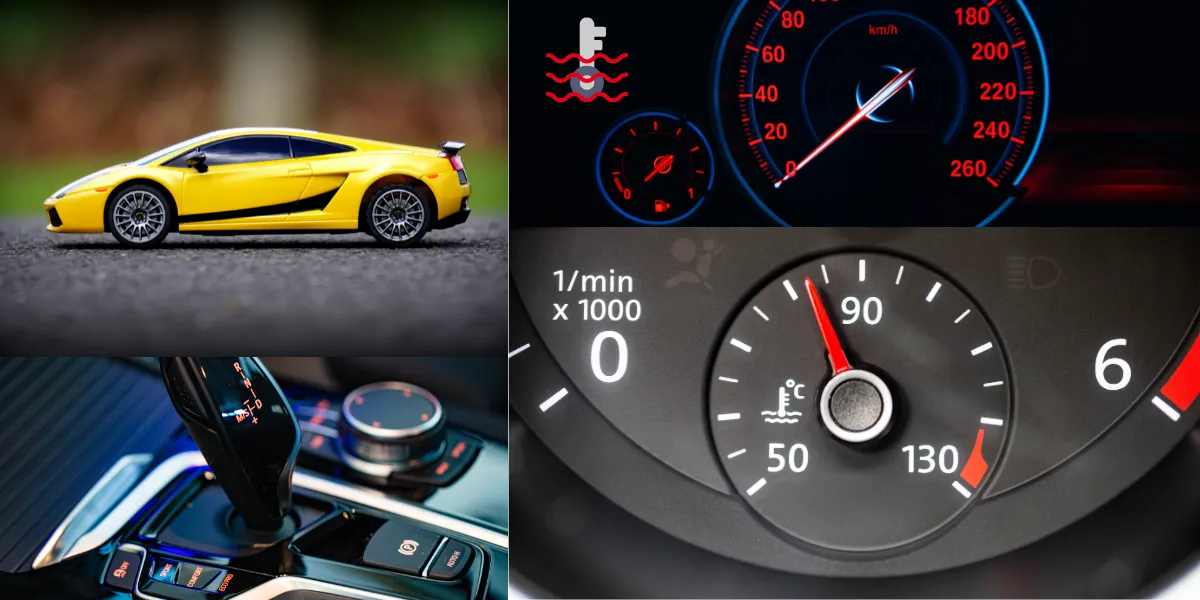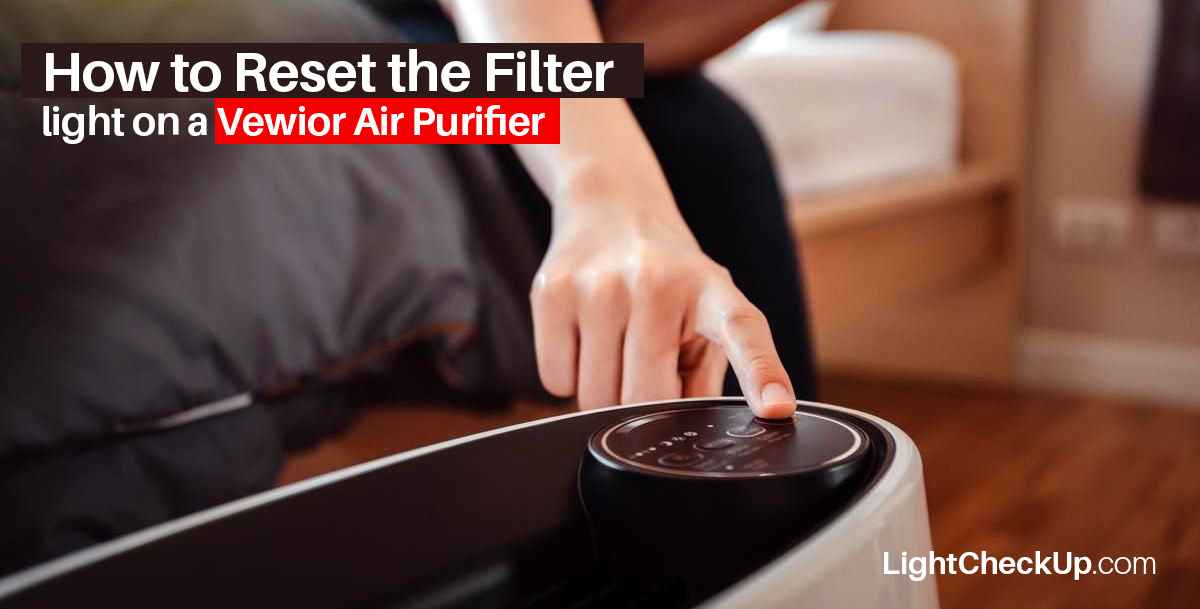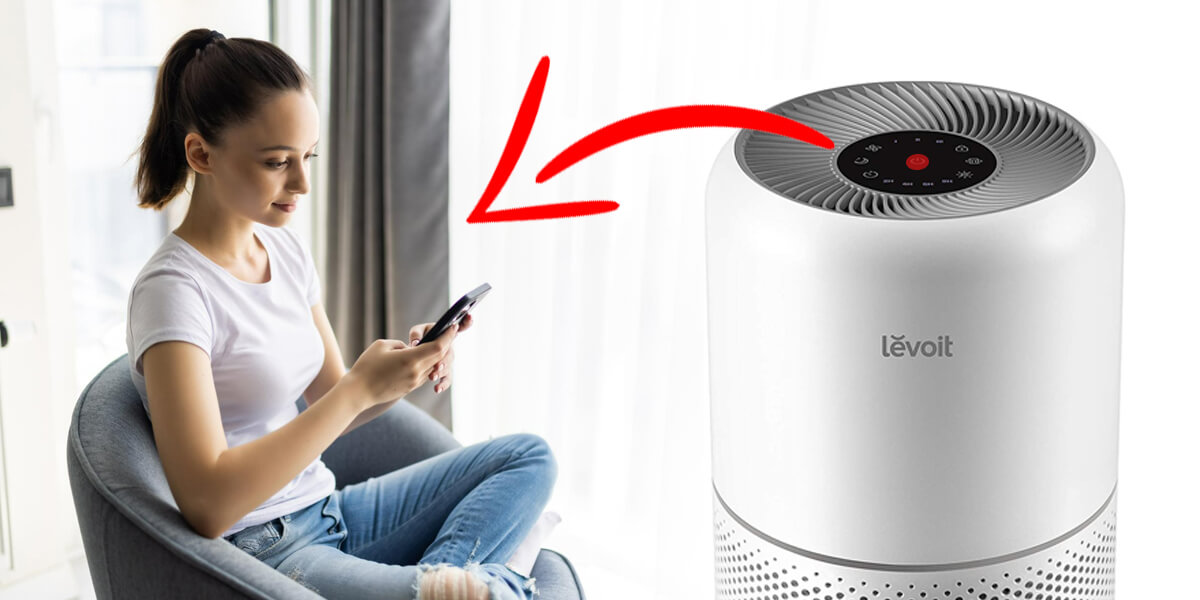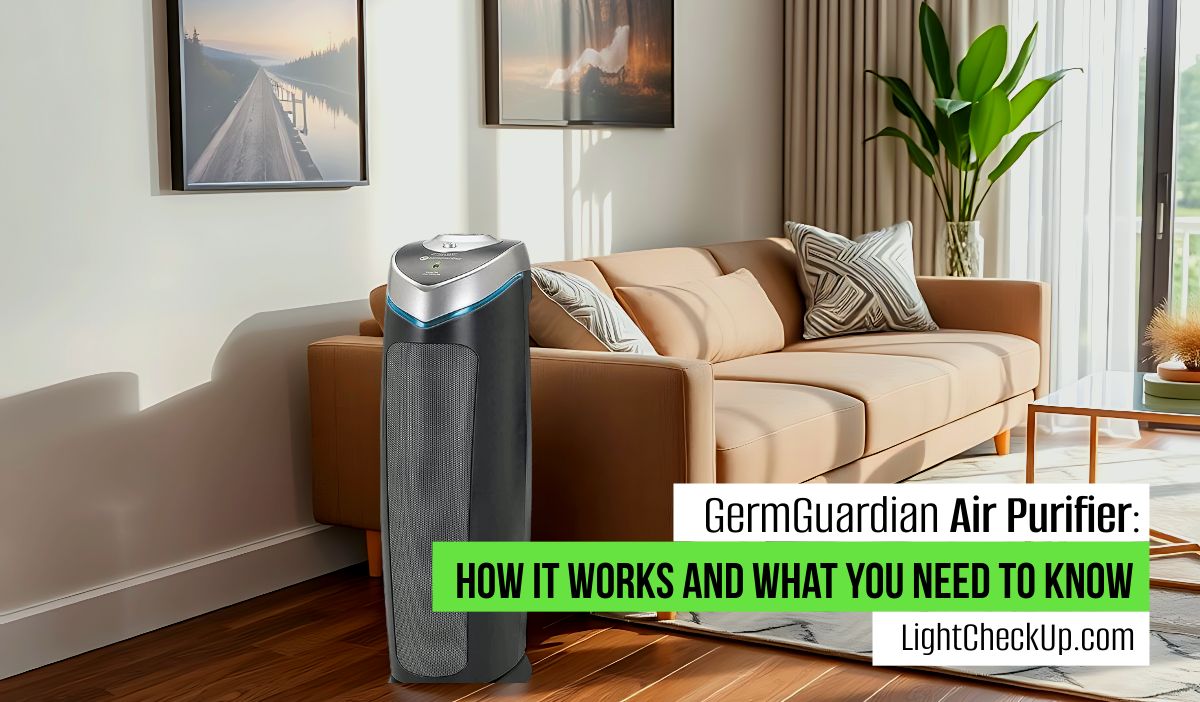Does an air purifier destroy viruses and bacteria? Everyone wonders if air purifiers for viruses and bacteria can fight COVID-19. We must understand how viruses move through the air and how air purifiers reduce viral transmission.
This blog article will assess air purifiers abilities against viruses and bacteria and discuss some of the best models. We will also discuss air purifier myths, mask replacement, and social distance.
Use air purifiers and healthy habits to prevent viral transmission. Join us as we discuss how air purifiers for bacteria and viruses work.

Air purifiers for viruses and bacteria
Air purifiers for viruses and bacteria: what you should know
Learning About Viruses and Airborne Transmission: It’s important to distinguish between airborne and surface-borne viruses. After touching infected items, surface transmission occurs, while airborne transmission occurs when respiratory droplets with viruses remain in the air.
The infected person produces these droplets when they cough, sneeze, or speak. Minor aerosols may propagate viruses. Air purifiers are needed for airborne transmission.
Do air purifiers work for viruses?
Yes, air purifiers may kill viruses, but they cannot guarantee protection. The size of the virus, the filter, and the airflow rate determine how well an air purifier removes it.
Airborne viruses may migrate via the air. Most viruses are less than 100 nanometers wide. The COVID-19 virus is 120 nanometers wide.
Air purifiers with HEPA filters may remove viruses. The HEPA filter traps particles of 0.3 microns or larger. Most viruses can be removed from the air using a HEPA filter. COVID-19 and other viruses smaller than 0.3 microns may not be removed by a HEPA filter.
In addition to HEPA filters, some air purifiers fight viruses using UV light. UV radiation damages viral DNA, preventing replication. Unlike HEPA filters, UV light does not kill viruses.
Air purifier airflow is also significant. The purifier cleans more air per minute at a faster airflow rate. This implies that a purifier with a greater airflow rate will remove viruses better.
Overall, air purifiers may minimize airborne infections. However, they do not guarantee protection and should not replace other protective measures like social distance and masks.

Air purifiers for viruses and bacteria image source by Amazon
Tips for selecting a virus-fighting air purifier:
- Choose a HEPA-filtered air purifier.
- Select a high-flow air purifier.
- Place the air purifier centrally in the room.
- Change the filter periodically per the manufacturer’s directions.
Follow these guidelines to guarantee your air purifier removes viruses.
How Air Purifiers Can Help Prevent the Spread of Viruses
Air purifiers for viruses and bacteria can prevent viral spread. They eliminate viruses and other airborne pollutants. Understanding how air purifiers catch small particles helps us appreciate their filtering methods.
Air purifiers’ HEPA filters capture and remove viruses well. Air purifiers kill viruses better in sleep mode and medium-sized rooms.
Air purifiers are ideal for minimizing COVID-19 and other disease transmission because of these properties. Healthy habits should be used with air purifiers to maximize viral prevention.
Test Air Purifier Viral Protection
Air purifiers reduce viruses, according to research. Air purifiers kill bacteria, but not viruses. Its efficiency depends on room size, air cleaner type, and virus type.
In addition to masks and cleanliness, air purifiers should be used. An air purifier with HEPA filters and a sleep mode is best for virus removal.
What to Look for in Air Purifiers: Key Features
These are the primary virus-prevention properties of air purifiers:
- HEPA filter: the key characteristic of air purifiers for virus protection HEPA filters remove 99.97% of airborne particles as tiny as 0.3 microns, or a virus.
- Some air purifiers offer multi-stage filtration, removing a larger variety of contaminants. A multi-stage air purifier may feature a pre-filter for big particles, a HEPA filter for microscopic particles, and an activated carbon filter for gases and smells.
- UV-C light is a form of ultraviolet light that kills viruses. Air purifiers with UV-C lamps purify the air.
- Air quality monitors measure air pollution levels. This information may automatically alter the air purifier’s settings for optimal performance.
- These modes enable the air purifier to automatically modify its settings depending on the level of pollutants in the air. This helps keep the air purifier running efficiently.
In addition to these crucial aspects, virus-prevention air purifiers should examine additional variables. These include the air purifier’s noise level, room size, and price.
Air purifiers can’t replace staying away from people who have viruses, washing your hands, and getting immunized. Air purifiers for viruses and bacteria may limit airborne virus exposure when used in conjunction with these procedures.
AHAM-certified air purifiers satisfy performance criteria. Read reviews to assess customer happiness and malware removal efficacy. Follow the instructions from the manufacturer to get the best performance out of your filters.

Air purifiers for viruses and bacteria
What are the most effective virus-free air purifier models?
When choosing the best air purifier for viruses, compare how well it gets rid of them. This may be done using portable air purifiers for certain room sizes or high-performance ones with complex filtering technology. Buying an air purifier requires a clean air delivery rate (CADR). Explore the best virus-fighting air purifiers for healthier indoor air. What is the best air purifier for viruses and bacteria?
Experts and customers name the top 5 best air purifiers for bacteria and viruses:
IQAir HealthPro Plus. Air purifiers for viruses and bacteria
This high-end air purifier removes viruses, germs, mold, and pollen. True HEPA filters collect 99.97% of particles as fine as 0.3 microns, while carbon filters eliminate smells and gases. One of the most effective air purifiers, the HealthPro Plus, is expensive.
Blueair Blue Pure 221+ Air purifiers for viruses and bacteria are more affordable options. tab
This is a mid-range air purifier that is also very effective at removing viruses. It has a true HEPA filter and a carbon filter, and it can clean the air in a room up to 361 square feet. The Blue Pure 221+ is also relatively quiet, making it a good choice for bedrooms and other quiet spaces.
Winix 5500-2: Air purifiers for viruses and bacteria
This is a budget-friendly air purifier that is still very effective at removing viruses. It has a true HEPA filter and a carbon filter, and it can clean the air in a room up to 360 square feet. The Winix 5500-2 is also Energy Star certified, so it is relatively efficient.
READ ALSO: How To Choose The Best Winix Air Purifier For Your Needs
Levoit Core 300: Air purifiers for viruses and bacteria

Air purifiers for viruses and bacteria image source by Amazon
This is another budget-friendly air purifier that is a good choice for small rooms. A real HEPA filter and carbon filter purify the air in a 150-square-foot space. The Levoit Core 300 is Wi-Fi-enabled for smartphone control.
Honeywell HPA300: Air purifiers for viruses and bacteria
True HEPA Air Purifier This is a basic air purifier that is effective at removing viruses and other pollutants. It has a true HEPA filter, and it can clean the air in a room up to 165 square feet. Its quietness makes the Honeywell HPA300 ideal for bedrooms and other quiet spaces.
When choosing a viral air purifier, consider space, pollution, and cost. It’s also crucial that the air purifier have a real HEPA filter, which removes viruses the best.
Additional Precautions to Enhance Protection Against Viruses
To protect against viruses, air purifiers and other measures are required. Regular handwashing and sanitization stop the spread of germs. Social separation in public areas reduces COVID-19 airborne transmission.
In busy places and near others, masks enhance safety. Coughing and sneezing cover microorganisms in the air. Regularly cleaning frequently touched surfaces reduces viral spread.

Air purifiers for viruses and bacteria
Do air purifiers ensure total safety from viruses?
Air purifiers can not guarantee virus protection. They minimize viral transmission, but they should be used with additional prophylactic measures. Proper ventilation, hygiene, and social distance limit viral exposure. Safety requires individual responsibility and action.
Air purifiers for viruses and bacteria: a part of the solution, not the whole solution
Air purifiers are essential for minimizing airborne viruses. They filter pollutants, including viruses, to improve indoor air quality. However, these purifiers alone cannot protect against viruses. They work best with handwashing, masks, and ventilation.
Air purifiers enhance medium-sized rooms air quality and support healthy behaviors. It’s important to remember that air purifiers may reduce the danger of airborne viruses like SARS-CoV-2, but they don’t replace other safeguards.
The Importance of Complementing Air Purifiers with Healthy Practices
Air purifiers protect against viruses; not a substitute for proper hygiene. To reduce microorganisms like viruses, you need air purifiers and regular cleaning and disinfection. Also important is following mask-wearing and social distance recommendations.
When you can, open the windows to let in more fresh air and cut down on pollutants in the air. Finally, emphasizing appropriate hand hygiene and respiratory etiquette boosts viral protection.
How Air Purifiers Contributed to Fighting the Pandemic
It reduced airborne transmission in confined places, helping fight the epidemic. They filtered out virus-containing respiratory droplets, enhancing indoor air quality and safety. Air purifiers for viruses and bacteria improve indoor air quality and protect vulnerable groups, including the elderly and the immunocompromised.
They were effective in keeping hospitals clean and pathogen-free by controlling COVID-19. The EPA and CDC suggest air cleaners to prevent COVID-19 and other germs from spreading.
What air purifier and virus myths are common?
Air purifiers reduce viruses but cannot eliminate them; HEPA filters may kill some but not all.
It is important to check the specifications of the air purifier to ensure it has a HEPA filter that effectively removes viruses. Air purifiers can help reduce exposure to viruses but cannot completely protect against getting sick.
Other factors, such as handwashing, social distancing, and vaccination, also contribute to getting sick. Air purifiers are beneficial for people living in any area, regardless of pollution levels. They improve health by removing air contaminants.
They do not replace handwashing, social separation, or immunization.
Myths about air purifiers are dispelled.
True HEPA filters catch 99.97% of 0.3-micron particles in air purifiers. Some types are intended to eliminate viruses like the flu and SARS-CoV-2. Air purifiers for viruses and bacteria prevent airborne transmission, making them ideal for healthier interior situations.
It is necessary to take airflow and filtration efficiency into account when evaluating their effectiveness. Performance needs frequent filter changes and maintenance. Air purifier misconceptions may be debunked to assist in making educated selections.

Air purifiers for viruses and bacteria
Can air purifiers replace masks and social distancing?
Air purifiers cannot substitute for masks or social distance. They reduce transmission to protect against airborne viruses. These preventative methods work together to improve safety.
In conclusion, air purifiers improve indoor air quality and reduce viral transmission. They lower the number of airborne viruses, according to scientific studies. However, air purifiers alone cannot protect against viruses. They should be used with masks, social distance, and cleanliness.
Choose air purifiers for viruses and bacteria with HEPA filters, high CADR ratings, and enough room coverage. Air purifiers can combat infections, but they should be used alongside healthy habits for safety.
READ ALSO: Red Light On Air Purifier? Here Are Some Tips To Get Rid Of Levoit Air Purifier Red Light








